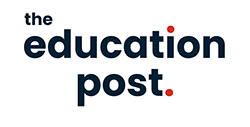QS Top Universities published 2025’s World University Rankings by Subject last week. While some hard-hitters with consistent appearances at the top of the league maintain their positions, several other universities show steady growth year-to-year, while others appear for the first time in the rankings.
Every year, QS Top Universities evaluates global universities across five broad subject categories:
- Arts & Humanities
- Engineering & Technology
- Life Sciences & Medicine
- Natural Sciences
- Social Sciences & Management
A total of 1,758 higher education institutions appear in the 2025 rankings across these five subject categories. This makes 2025 the ranking’s biggest year, with 171 new names appearing in these rankings that did not land a spot in 2024.
The rankings additionally break down the five broad disciplines into 55 narrower specializations, to highlight how universities perform in these fields against key metrics.
This year, Harvard University snags the #1 spot for Arts & Humanities, Life Sciences & Medicine, Natural Sciences, & Social Sciences & Management. The Massachusetts Institute of Technology (MIT) scores the #1 position in Engineering & Technology.
Below are the top ten universities in each subject category:
| Arts & Humanities | Engineering & Technology | Life Sciences & Medicine | Natural Sciences | Social Sciences & Management |
| Harvard University – USA | Massachusetts Institute of Technology – USA | Harvard University – USA | Harvard University – USA | Harvard University – USA |
| University of Oxford – UK | University of Oxford – UK | University of Oxford – UK | Massachusetts Institute of Technology (MIT) – USA | University of Oxford – UK |
| University of Cambridge – UK | Stanford University – USA | Johns Hopkins University – USA | University of Oxford – UK | Stanford University – USA |
| Stanford University – USA | University of Cambridge – UK | Stanford University – USA | University of Cambridge – UK | Massachusetts Institute of Technology (MIT) – USA |
| University of California, Berkeley – USA | ETH Zurich – Swiss Federal Institute of Technology, Switzerland | Massachusetts Institute of Technology (MIT) – USA | Stanford University – USA | University of Cambridge – UK |
| Yale University – USA | University of California, Berkeley (UCB) – USA | University of Cambridge – UK | ETH Zurich – Swiss Federal Institute of Technology – Switzerland | The London School of Economics and Political Science – UK |
| Massachusetts Institute of Technology (MIT) – USA | Tsinghua University – Mainland China | University of California, San Franscisco (UCSF) – USA | California Institute of Technology (Caltech) – USA | University of California, Berkeley – USA |
| University of California, Los Angeles (UCLA) – UK | Imperial College London – UK | Imperial College London – UK | University of California, Berkeley – USA | Yale University – USA |
| New York University (NYU) – USA | Harvard University – USA | University College London (UCL) – UK | Imperial College London – UK | University of Chicago – USA |
| University of Edinburgh – UK | EPFL – Switzerland | Karolinska Institute – Sweden | Tsinghua University – Mainland China | National University of Singapore (NUS) – Singapore |
While the UK and the USA continue to dominate the top ten, there have been several contenders, new and old, occupying strong positions in the rankings. East Asia, in particular, has made a considerable splash, with over 50% of institutions improving their rankings across all subject areas. The region sees exceptional growth in Natural Sciences, partly driven by China’s contributions through considerable investments in research and innovation. Eastern Asia cracks the top 50 for both Engineering & Technology and Arts & Humanities with its universities.
Subject-wise trends indicate a boom in Data Science and Artificial Intelligence. The subject area exceeds 100 entries for the first time, reflective of the immense real-world growth and demand in these sectors.
Several Indian universities feature in the QS World University Rankings by Subject as well, including:
| Arts & Humanities | =160 – University of Delhi
=177 – Jawaharlal Nehru University =191 – Indian Institute of Bombay (IITB) =360 – O.P Jindal Global University =394 – Indian Institute of Technology Madras (IITM) |
| Engineering & Technology | #26 – Indian Institute of Technology Delhi
#28 – Indian Institute of Technology Bombay =53 – Indian Institute of Technology Madras =72 – Indian Institute of Technology Kanpur =84 – Indian Institute of Science |
| Life Sciences & Medicine | =226 – All India Institute of Medical Sciences
=293 – Manipal Academy of Higher Education =362 – University of Delhi #401-450 – Postgraduate Institute of Medical Education & Research Chandigarh #451-500 – Saveetha Institute of Medical and Technical Sciences (SIMATS) |
| Natural Sciences | =108 – Indian Institute of Science
=112 – Indian Institute of Technology Bombay =146 – Indian Institute of Technology Delhi = 173 – Indian Institute of Technology Madras = 182 – Indian Institute of Technology Kanpur |
| Social Sciences and Management | #75 – Indian Institute of Technology Delhi
=79 – Indian Institute of Management – Ahmedabad =89 – Indian Institute of Technology Bombay =137 – University of Delhi =189 – Indian Institute of Technology Kharagpur
|
Broadly, the QS World University Rankings by Subject evaluate universities against the following metrics:
Employability: Employer Reputation
Research & Discovery: H-index Citations, Citations per Paper, Academic Reputation
Global Engagement: International Research
The Subject Rankings prioritize metrics that global audiences and stakeholders – including students, institutions, and government bodies – can utilize to pinpoint universities excelling in fields of interest and relevance.



